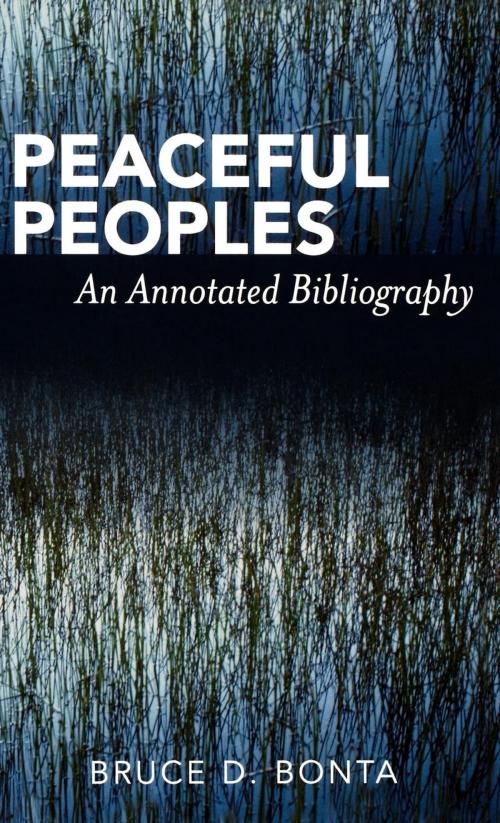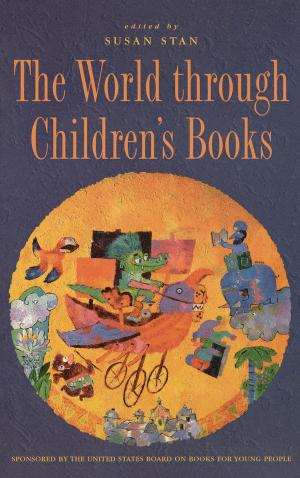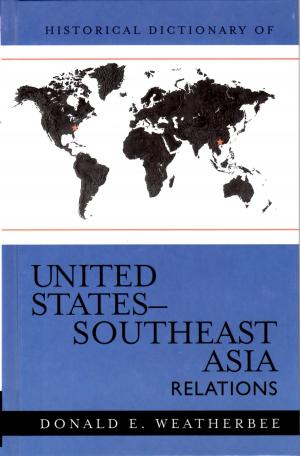Peaceful Peoples
An Annotated Bibliography
Nonfiction, Reference & Language, Reference, Bibliographies| Author: | Bruce D. Bonta | ISBN: | 9781461670377 |
| Publisher: | Scarecrow Press | Publication: | December 1, 1993 |
| Imprint: | Scarecrow Press | Language: | English |
| Author: | Bruce D. Bonta |
| ISBN: | 9781461670377 |
| Publisher: | Scarecrow Press |
| Publication: | December 1, 1993 |
| Imprint: | Scarecrow Press |
| Language: | English |
Peaceful peoples are societies that have developed harmonious social structures which allow them to get along with each other, and with outsiders, without violence. Most of these peoples foster a spirit of cooperation rather than competition, promote sharing rather than glorifying greed, and live in harmony with the earth as well as with other people. Perhaps most importantly, they believe that peacefulness is the defining characteristic of their humanity.
Some of the peoples included in the book are from the Western tradition such as the Amish, Hutterites, Mennonites, Quakers, and Tristan Islanders; from South America, the Piaroa; from Africa, the Fipa; from South Asia, the Paliyan, Malapandaram, and Nayaka; from Southeast Asia, the Semai, Chewong, and Buid; and from Micronesia, the Ifaluk.
This selected bibliography includes annotated references to books, articles, and other English-language publications that provide significant information about a peaceful society. The author has combed the literature of fields such as anthropology, psychology, sociology, history, and religious studies for appropriate works, with a cutoff date of 1992.
Scholars and peace activists who are interested in societies that foster peacefulness have difficulty finding references to the literature. Numerous indexes and abstracts do not include subject headings such as "peaceful peoples." Furthermore, indexing services often do not cover chapters in edited volumes, an important part of this literature. The book includes a very detailed name and subject index that provides access to the intriguing social psychological, and cultural similarities—and difference—existing among the peoples.
Peaceful peoples are societies that have developed harmonious social structures which allow them to get along with each other, and with outsiders, without violence. Most of these peoples foster a spirit of cooperation rather than competition, promote sharing rather than glorifying greed, and live in harmony with the earth as well as with other people. Perhaps most importantly, they believe that peacefulness is the defining characteristic of their humanity.
Some of the peoples included in the book are from the Western tradition such as the Amish, Hutterites, Mennonites, Quakers, and Tristan Islanders; from South America, the Piaroa; from Africa, the Fipa; from South Asia, the Paliyan, Malapandaram, and Nayaka; from Southeast Asia, the Semai, Chewong, and Buid; and from Micronesia, the Ifaluk.
This selected bibliography includes annotated references to books, articles, and other English-language publications that provide significant information about a peaceful society. The author has combed the literature of fields such as anthropology, psychology, sociology, history, and religious studies for appropriate works, with a cutoff date of 1992.
Scholars and peace activists who are interested in societies that foster peacefulness have difficulty finding references to the literature. Numerous indexes and abstracts do not include subject headings such as "peaceful peoples." Furthermore, indexing services often do not cover chapters in edited volumes, an important part of this literature. The book includes a very detailed name and subject index that provides access to the intriguing social psychological, and cultural similarities—and difference—existing among the peoples.















